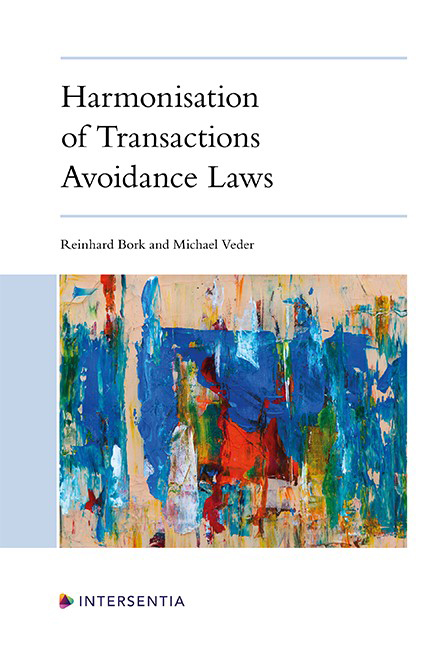Luxembourg
Published online by Cambridge University Press: 26 May 2022
Summary
PART 1. DETAILS OF YOUR NATIONAL TRANSACTIONS AVOIDANCE LAW
I. SYSTEM
Question 1. Is your transactions avoidance law (for terminology cf. Introduction at C.) part of insolvency law or is it in parts or as a whole incorporated in other fields of law (e.g. general civil law, commercial law, company law)?
Luxembourg transactions avoidance laws are incorporated in Art. 445 – 448 of the Luxembourg Commercial Code (“Code de Commerce”), specifically in its third book about bankruptcies (“Des faillites, banqueroutes et sursis”).
Question 2. Are the rules on transactions avoidance law in your jurisdiction the same for entrepreneurs/legal entities and consumers/natural persons? If not, please explain the differences and take it into account when completing this questionnaire.
In Luxembourg, transactions avoidance laws apply to all kinds of merchants (“tout commerçant”), whether they act as natural persons or legal entities (i.e. commercial companies). Non-merchants (in particular consumers, but also certain professionals, such as lawyers acting as natural persons) are not subject to the insolvency provisions of the Commercial Code.
Specific rules have been designed, following European law, for the resolution of credit institutions. Yet, in the absence of a resolution, a court may decide to apply all or part of the ordinary insolvency rules to the liquidation of an insolvent bank.
Question 3. Are the rules on transactions avoidance law in your jurisdiction the same for liquidation and restructuring proceedings (if any)? If not, please explain the differences and take it into account when completing this questionnaire.
Besides the ordinary bankruptcy regime, there are three related proceedings: “gestion contrôlée”, “concordat préventif de paiement”, and “sursis de paiement”, which can be used for restructuring purposes.
Yet, all three offer merely very rudimentary solutions aimed at postponing a state of final insolvency. Since they are seldom used in practice, we will not make reference to them in this questionnaire.
Avoidance rules come into play if and when such proceedings are unsuccessful and are transformed into a bare bankruptcy proceeding. The starting date of the so-called “suspect period “may in that case be brought forward to the beginning of these proceedings.
- Type
- Chapter
- Information
- Harmonisation of Transactions Avoidance Laws , pp. 1021 - 1042Publisher: IntersentiaPrint publication year: 2022

